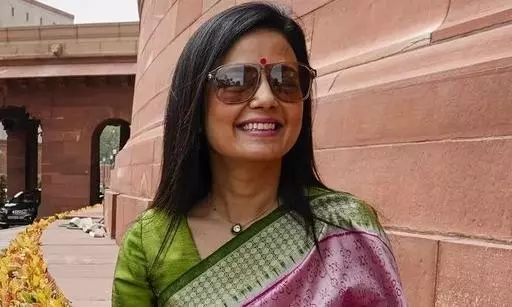
- Home
- India
- World
- Premium
- THE FEDERAL SPECIAL
- Analysis
- States
- Perspective
- Videos
- Sports
- Education
- Entertainment
- Elections
- Features
- Health
- Business
- Series
- In memoriam: Sheikh Mujibur Rahman
- Bishnoi's Men
- NEET TANGLE
- Economy Series
- Earth Day
- Kashmir’s Frozen Turbulence
- India@75
- The legend of Ramjanmabhoomi
- Liberalisation@30
- How to tame a dragon
- Celebrating biodiversity
- Farm Matters
- 50 days of solitude
- Bringing Migrants Home
- Budget 2020
- Jharkhand Votes
- The Federal Investigates
- The Federal Impact
- Vanishing Sand
- Gandhi @ 150
- Andhra Today
- Field report
- Operation Gulmarg
- Pandemic @1 Mn in India
- The Federal Year-End
- The Zero Year
- Science
- Brand studio
- Newsletter
- Elections 2024
- Events
- Home
- IndiaIndia
- World
- Analysis
- StatesStates
- PerspectivePerspective
- VideosVideos
- Sports
- Education
- Entertainment
- ElectionsElections
- Features
- Health
- BusinessBusiness
- Premium
- Loading...
Premium - Events

Natural justice was breached with impunity by the Parliamentary Ethics Committee, and is destined to be quashed by every court of justice
If the grapevine is to be believed, the feisty Parliamentarian Mahua Moitra will be expelled/suspended as an MP on December 4, 2023, when the winter session of Parliament commences. And, more will follow with the slapping of an FCRA (Foreign Contribution Regulation Act, 2010) case, et al, on her, based on the affidavit of Darshan Hiranandani insinuating that he had bribed Moitra. It must, however, be mentioned that the affidavit does not mention cash bribes.
Some questions arise: Can Hiranandani escape if his affidavit withstands cross-examination? Can a bribe giver escape under extant laws in India? Which court will make him an approver? And assuming the court makes him an approver, can he be acquitted unless the court accepts his version to be true? What if his version is not accepted as true by the court? He will then be relegated as an accused. That’s the law.
His fate will hang in the balance between acquittal and conviction during a long-drawn criminal trial. So Hiranandani’s affidavit seems ill-advised. The court is also likely to take judicial notice of the fact that the affidavit contradicts a statement made in the public domain by Hiranandani’s company on October 16, 2023. What transpired between October 16 and October 19/20, 2023 may well be a subject matter of investigation.
Beyond FCRA’s jurisdiction
The next question: Can FCRA be triggered based on Hiranandani’s affidavit? FCRA prohibits the acceptance of “foreign contribution” as prescribed under Section 3 (1). An essential ingredient of “foreign contribution” is “foreign source” as defined in Section 2 (1) (h). “Foreign source”, in turn, has been defined in Section 2 (1) (j). In brief, if there is no “foreign source”, the applicability of FCRA is barred.
In the context of the alleged cash-for-query row, a bare look at Section 2 (1) (j) shows that Darshan Hiranandani, albeit being a resident of Dubai, is not a “foreign source”, since he is an Indian passport holder. Consequently, the contents of the affidavit dated October 19/20, 2023 sworn by Darshan Hiranandani levelling allegations against Mahua Moitra go beyond the purview of FCRA. In short, triggering FCRA against Moitra, on facts, will be beyond the jurisdiction of FCRA authorities.
Next, the applicability of The Prevention of Corruption Act, 1988. Darshan Hiranandani cannot escape from the clutches of the PC Act, 1988 since it applies to all citizens of India outside India, as stipulated in its Section 1 (2). The Central Bureau of Investigation (CBI) cannot summon just Moitra and leave Hiranandani out. The alleged bribe giver/taker both have to be questioned to get to the bottom of the truth. The CBI is required to perform this task even-handedly. Its actions will be closely watched.
Natural justice breached with impunity
The Ethics Committee of the Lok Sabha, by a split verdict (6:4), adopted its report on the basis of Hiranandani’s affidavit without even summoning him. Moitra was denied her right to cross examine the star witness. Natural justice was breached with impunity. Such a procedure is destined to be quashed by every court of justice.
With regard to the sharing of login details, etc., there ought to be a uniform rule/procedure applicable to every Parliamentarian. The rules must be framed/amended, communicated to every MP well in advance, and meticulously enforced for every MP without exception. This onerous responsibility is bestowed on the Speaker of the Lok Sabha and the Chairman of the Rajya Sabha.
But in no civilised jurisprudence can a citizen be punished based on the testimony of a person who remains protected from cross examination. The arms of our constitutional courts are long enough to strike down such a procedure.
Finally, the quid-pro-quo angle. Assuming the worst against the alleged bribe giver/taker, it cannot, ipso facto, invalidate the questions. Questions raised by Mahua Moitra will have to be answered in the national interest. When critical voices in the sanctum sanctorum of democracy, the Parliament, are silenced, the apex judiciary may well step in. Silencing critical voices in Parliament shakes the foundation of our sovereign democratic republic.
And, Article 32 of the Constitution remains alive. It can never be suspended. Our Supreme Court is the Sentinel on the Qui Vive (watchful guardian).
(The writer is Senior Advocate, Supreme Court of India, and former Additional Solicitor General of India.)
(The Federal seeks to present views and opinions from all sides of the spectrum. The information, ideas or opinions in the articles are of the author and do not necessarily reflect the views of The Federal.)


